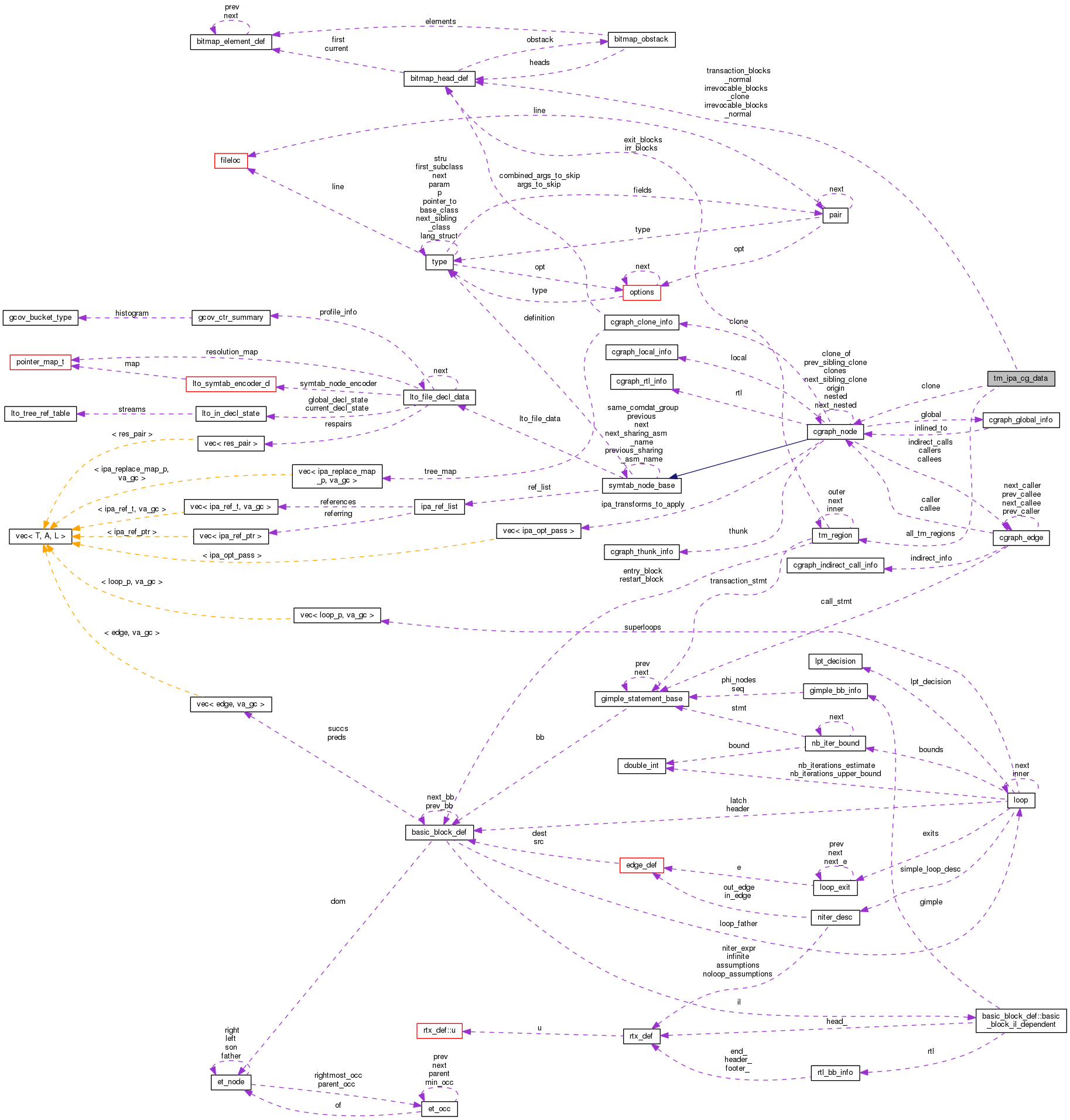
Data Fields | |
| struct cgraph_node * | clone |
| struct tm_region * | all_tm_regions |
| bitmap | irrevocable_blocks_normal |
| bitmap | irrevocable_blocks_clone |
| bitmap | transaction_blocks_normal |
| unsigned | tm_callers_normal |
| unsigned | tm_callers_clone |
| bool | is_irrevocable |
| bool | in_callee_queue |
| bool | in_worklist |
| bool | want_irr_scan_normal |
Detailed Description
Interprocedual analysis for the creation of transactional clones. The aim of this pass is to find which functions are referenced in a non-irrevocable transaction context, and for those over which we have control (or user directive), create a version of the function which uses only the transactional interface to reference protected memories. This analysis proceeds in several steps:
(1) Collect the set of all possible transactional clones:
(a) For all local public functions marked tm_callable, push it onto the tm_callee queue.
(b) For all local functions, scan for calls in transaction blocks. Push the caller and callee onto the tm_caller and tm_callee queues. Count the number of callers for each callee.
(c) For each local function on the callee list, assume we will create a transactional clone. Push all calls onto the callee queues; count the number of clone callers separately to the number of original callers.
(2) Propagate irrevocable status up the dominator tree:
(a) Any external function on the callee list that is not marked tm_callable is irrevocable. Push all callers of such onto a worklist.
(b) For each function on the worklist, mark each block that contains an irrevocable call. Use the AND operator to propagate that mark up the dominator tree.
(c) If we reach the entry block for a possible transactional clone, then the transactional clone is irrevocable, and we should not create the clone after all. Push all callers onto the worklist.
(d) Place tm_irrevocable calls at the beginning of the relevant blocks. Special case here is the entry block for the entire transaction region; there we mark it GTMA_DOES_GO_IRREVOCABLE for the library to begin the region in serial mode. Decrement the call count for all callees in the irrevocable region.
(3) Create the transactional clones:
Any tm_callee that still has a non-zero call count is cloned. This structure is stored in the AUX field of each cgraph_node.
Field Documentation
| struct tm_region* tm_ipa_cg_data::all_tm_regions |
The tm regions in the normal function.
Referenced by gate_tm_memopt().
| struct cgraph_node* tm_ipa_cg_data::clone |
The clone of the function that got created.
| bool tm_ipa_cg_data::in_callee_queue |
Flags indicating the presence of this function in various queues.
| bool tm_ipa_cg_data::in_worklist |
Referenced by ipa_tm_transform_calls_1().
| bitmap tm_ipa_cg_data::irrevocable_blocks_clone |
Referenced by ipa_tm_scan_irr_block().
| bitmap tm_ipa_cg_data::irrevocable_blocks_normal |
The blocks of the normal/clone functions that contain irrevocable calls, or blocks that are post-dominated by irrevocable calls.
| bool tm_ipa_cg_data::is_irrevocable |
True if all calls to this function's transactional clone are irrevocable. Also automatically true if the function has no transactional clone.
| unsigned tm_ipa_cg_data::tm_callers_clone |
| unsigned tm_ipa_cg_data::tm_callers_normal |
The number of callers to the transactional clone of this function from normal and transactional clones respectively.
| bitmap tm_ipa_cg_data::transaction_blocks_normal |
The blocks of the normal function that are involved in transactions.
Referenced by gate_tm_memopt().
| bool tm_ipa_cg_data::want_irr_scan_normal |
Flags indicating the kind of scan desired while in the worklist.
The documentation for this struct was generated from the following file:
